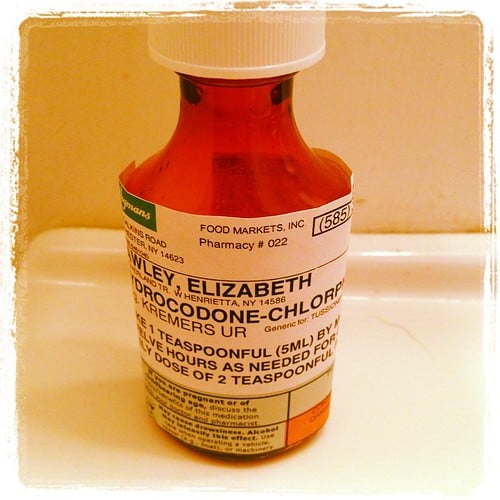Hydrocodone is a type of opioid medication that is typically prescribed to alleviate pain. However, it is also known to have a high potential for addiction and dependence.
When a person stops taking hydrocodone after prolonged use, they may experience a range of withdrawal symptoms.
In this article, we will delve into the different symptoms of withdrawal from hydrocodone, providing insights into the challenges that are faced during the process of ceasing the use of this opioid.
What is Hydrocodone?
Before we explore what are the symptoms of withdrawal from hydrocodone, it’s essential to understand what hydrocodone is and why it can lead to dependence.
Hydrocodone is a semi-synthetic opioid derived from codeine.
It’s used to treat moderate to severe pain but also has a high potential for abuse and addiction.
The Risk of Dependence
Long-term use of hydrocodone can lead to tolerance, meaning higher doses are needed to achieve the same effect.
This can quickly escalate to physical dependence, where the body requires the drug to function normally.
Symptoms of Hydrocodone Withdrawal
Withdrawal from hydrocodone can be a challenging process, marked by a range of symptoms that can affect both physical and mental health.
Physical Symptoms
The physical symptoms of hydrocodone withdrawal can include:
- Muscle aches
- Fever
- Sweating
- Runny nose
- Insomnia
- Diarrhea
These symptoms can be quite severe and are often the first sign of withdrawal that individuals notice.
Psychological Symptoms
In addition to physical discomfort, individuals may experience psychological symptoms such as:
- Anxiety
- Irritability
- Mood swings
- Depression
These symptoms can make the process of withdrawal particularly difficult to endure without support.
The Timeline of Withdrawal
The withdrawal process follows a general timeline, although the exact duration and severity of symptoms can vary from person to person.
| Stage | Timeframe | Symptoms |
|---|---|---|
| Early Withdrawal | 6-12 hours after last dose | Muscle aches, anxiety, tearing |
| Peak Withdrawal | 72 hours after last dose | Nausea, vomiting, diarrhea, abdominal cramping |
| Late Withdrawal | 1 week after last dose | Reduced intensity of earlier symptoms, possible depression |
Understanding this timeline can help individuals and caregivers prepare for the process of withdrawal.
Managing Withdrawal Symptoms
There are ways to manage withdrawal symptoms to make the process more bearable. This can include medication-assisted treatment (MAT), hydration, and supportive care.
Medication-Assisted Treatment (MAT)
MAT involves the use of medications like buprenorphine or methadone to reduce cravings and withdrawal symptoms. This treatment can be a lifeline for those struggling with severe withdrawal.
Supportive Care
Supportive care, including counseling and support groups, can provide the emotional support needed to navigate the challenges of withdrawal.
Resources for Hydrocodone Withdrawal
For those seeking help with hydrocodone withdrawal, there are several resources available:
- SAMHSA’s National Helpline: A confidential, free, 24-hour-a-day service for individuals facing substance use disorders.
- MedlinePlus on Opiate and Opioid Withdrawal: Information on the symptoms and treatment of opioid withdrawal.
- Clinical Opiate Withdrawal Scale (PDF): A tool used by healthcare providers to assess the level of withdrawal.
Understanding the Challenges of Withdrawal
Withdrawal from hydrocodone is not just a physical challenge but a psychological one as well. The symptoms can be daunting, and the fear of experiencing them can often deter individuals from seeking help.
The Role of Support Systems
Having a strong support system, whether through family, friends, or healthcare providers, is crucial during the withdrawal process. It provides the emotional backing and encouragement needed to continue the journey to recovery.
Educational Resources and Further Reading
For those looking to understand more about hydrocodone withdrawal, the following resources offer valuable information:
- Healthdirect on Opioid Withdrawal: An overview of symptoms, prevention, and tapering off opioids.
Navigating Hydrocodone Withdrawal
Withdrawal from hydrocodone is a multifaceted process that affects individuals differently. Understanding the nuances of this process can help in managing the symptoms more effectively.
Strategies for Coping with Withdrawal
Coping with the symptoms of hydrocodone withdrawal requires a comprehensive approach that includes both medical interventions and lifestyle adjustments.
Medical Interventions
Medications such as clonidine, buprenorphine, and methadone can be prescribed to alleviate withdrawal symptoms. These medications must be taken under the supervision of a healthcare provider to ensure safety and efficacy.
Lifestyle Adjustments
Simple lifestyle adjustments can also make a significant difference. These include:
- Maintaining a healthy diet
- Engaging in light exercise
- Ensuring adequate sleep
- Staying hydrated
The Role of Rehabilitation Centers
Rehabilitation centers play a crucial role in supporting individuals through the withdrawal process. They provide a structured environment where individuals can detox safely and begin the journey to recovery.
Services Offered by Rehab Centers
Rehab centers typically offer a range of services, including:
- Medical detoxification
- Individual counseling
- Group therapy
- Aftercare planning
For those looking for rehabilitation services, drugdetoxandrehab.com offers a wealth of information and resources.
Personal Stories of Recovery
Personal stories and testimonials can provide hope and inspiration for those going through withdrawal. Hearing about others’ experiences with hydrocodone withdrawal can be incredibly empowering.
Sharing Experiences
Platforms like YouTube offer a space for individuals to share their journey through withdrawal and recovery. Here are a couple of videos that might offer some insight and support:
- “Personal Story of Hydrocodone Withdrawal” (insert raw HTML URL here)
- “Journey Through Opioid Recovery” (insert raw HTML URL here)
Frequently Asked Questions
What are the first signs of hydrocodone withdrawal?
The first signs typically include muscle aches, restlessness, and anxiety, which can start as early as a few hours after the last dose.
Can withdrawal symptoms be life-threatening?
While hydrocodone withdrawal can be extremely uncomfortable, it is not usually life-threatening. However, complications can arise if not properly managed.
How long does it take to detox from hydrocodone?
The acute phase of withdrawal can last anywhere from a week to a month, but psychological cravings may persist longer.
External Support and Resources
External support, such as hotlines and online resources, can provide immediate assistance and information. For instance, SAMHSA’s National Helpline is a confidential, free, 24/7 service for individuals facing substance use disorders.
The Importance of Aftercare
Aftercare is a critical component of the recovery process. It involves ongoing support after the initial treatment phase to prevent relapse.
Aftercare Options
Aftercare can include:
- Sober living homes
- Outpatient counseling
- Support groups like Narcotics Anonymous
For more information on aftercare services, visit drugdetoxandrehab.com.
Continuing the Journey to Recovery
Recovery from hydrocodone addiction is a long-term process that requires dedication and support. It’s important to remember that withdrawal is just the first step in a much longer journey.
Staying Committed to Recovery
The path to recovery is not linear and may involve setbacks. However, with the right support and resources, individuals can overcome hydrocodone dependency and rebuild their lives.
For additional support and resources on hydrocodone withdrawal and recovery, consider visiting the following links:

